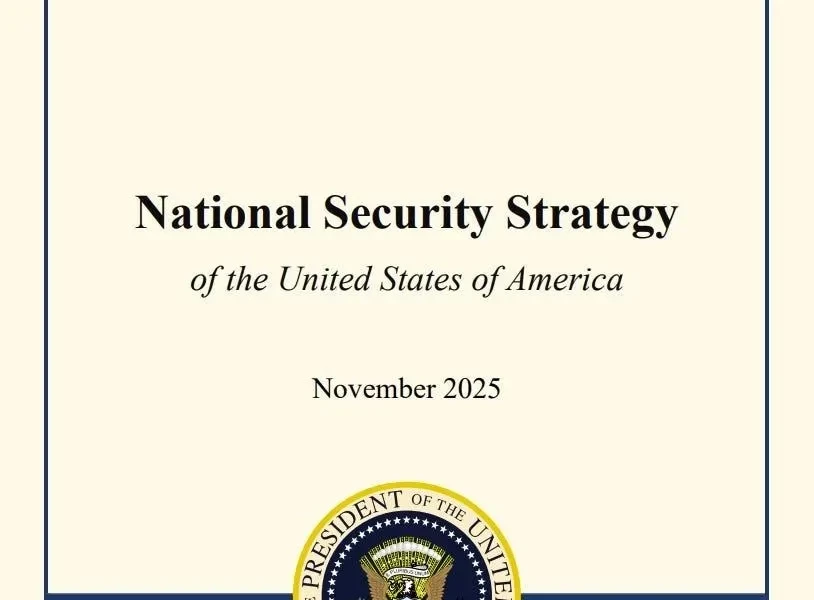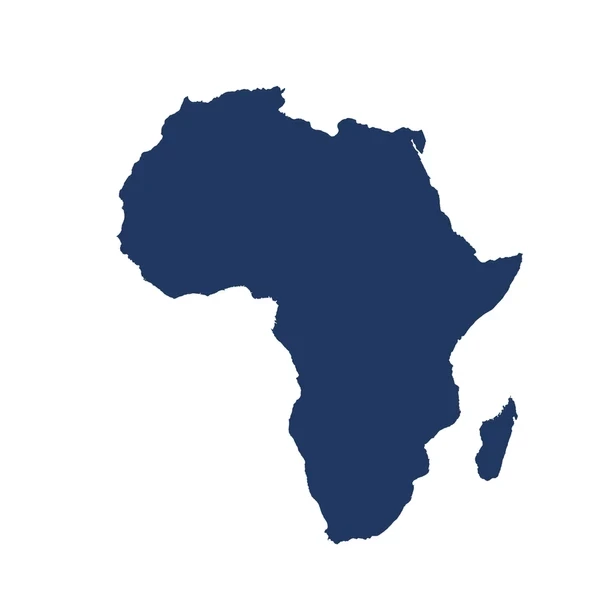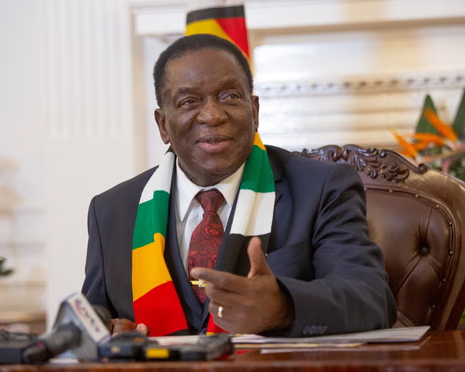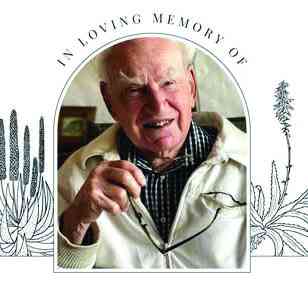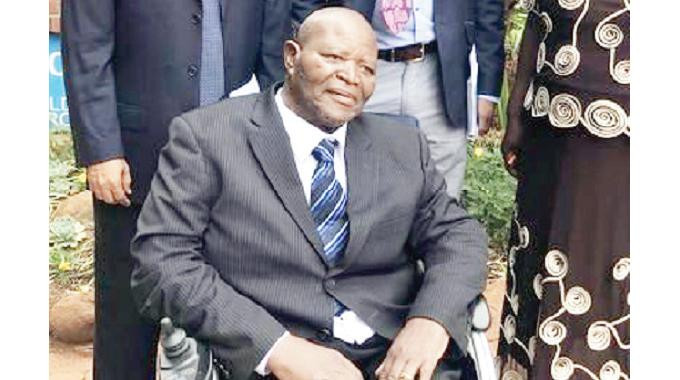
We, the people who live with disabilities locally and internationally will fondly remember Joshua Teke Malinga for not only fighting for our cause but for being our mentor, our icon, motivator and a hero who literally showed us the way.
Malinga was a giant in terms of championing the rights of people with disabilities not only in Zimbabwe but globally.
Having stepped up his fight for the recognition of people with disabilities as equal human beings with the non-disabled around 1977, Malinga is part of the group of notable disability issues' icons of our nation such as Jairos Jiri, Alexander Phiri, Chrispen Munyuki and Rangarirai Mupindu all of whom are regrettably late.
Besides Malinga being noted for championing the rights of people with disabilities, he was also a very astute businessman and a skilled politician as evidenced by his appointment as the mayor of Bulawayo for two consecutive terms, elected as a senator and seconded to the ruling party's highest decision making body, the politburo!
Malinga left an indelible mark in the disability circles as he was instrumental in the formation and running of more than 30 local, regional as well as international organisations for people with disabilities.
His tentacles in terms of influencing disability issues spread as far as the United States of America where he was part of the World Disability Committee in Washington DC.
He got appointed as patron for Action on Disability and Development in the United Kingdom.
His significance and impact on disability issues was further amplified by his appointment as the United Nations secretary general's advisor on Implementation of Standard Rules on Equalisation of Opportunities for Disabled People.
- Malinga advises against begging
- Tributes pour in for Joshua Malinga
- Malinga declared national hero
- Letters: Disability issues: Joshua Malinga is an icon
Keep Reading
As an individual I learnt a lot from the late great icon right from when he formed provincial structures that would help coordinate his role as the special advisor to the president on disability issues. I was appointed the inaugural Midlands Provincial Steering Committee chairperson.
I remember him, the boss, as we fondly called him, telling me on the very day he came to Gweru to preside over the appointments and constituting of the provincial steering committee.
Prior to that appointment he had tasked me with the distribution of rice to people with disabilities in the province.
I remember very well how he instructing me to go to Harare to collect about two tonnes of rice using my own resources and to go and distribute them fairly in Midlands.
After completing the task he then summoned me and said "What you did shows that you are a natural disability rights and welfare champion because you have the ability to sacrifice both your time and resources and you can follow instructions."
That was in 2018. I had always been a disability rights champion in my own right but on a smaller scale. My close relationship with Dr Malinga gave me the confidence to contribute on disability issues at national level.
The various boards which I now sit on representing the interests of people with disabilities I mostly owe to Malinga's mentorship.
I can witness for a fact how he would always question me on my contributions on these boards vis-a-vis people with disabilities.
He would only let me off the hook if I had shown that my contributions were empowering people with disabilities.
His philosophy was that any person with a disability occupying a position of responsibility should strive to speak on behalf of the multitudes of people with disabilities who bear the brunt of society's neglect until they are recognised and empowered.
When one looks at Malinga's hands on the involvement in disability issues globally, it becomes easy to appreciate that his perspective and approach when dealing with disability concerns was comprehensive enough.
One gets to understand why President Emmerson Mnangagwa made him the special advisor to the president on disability issues.
Malinga's appointment as the special advisor to the president on disability issues coupled with Mnangagwa's interest in addressing disability concerns in Zimbabwe witnessed quite a huge leap in terms of uplifting lives as well as recognition of people with disabilities as equal citizens with non-disabled people.
The nation got to witness for the first time, a sitting president taking personal interest and involvement in the prime national event meant to highlight and propel people with disabilities to national prominence through making the public aware of capabilities of people with disabilities under the auspices of the National Disability Expo.
Malinga also worked hand in glove with the first lady Auxilia Mnangagwa's office in alleviating the plight of people with disabilities in various parts of the country including some in very remote areas which had been previously overlooked.
On September 3, 2023 I had a dream which I still remember vividly. I dreamt I was in a hall with Malinga and several other people with disabilities.
Malinga was seated in his wheelchair facing the people. I was standing on my crutches next to him. A register of the people whom he was addressing was being read out.
I then remarked to him that it seemed everyone in there was from Bulawayo therefore there was no need for me to be there since I represented the Midlands disability fraternity.
I remember very well in the dream that he retorted and said that I should sit and observe as he addressed the attendees.
He quickly added; "Remember I am your boss and I am the one who summoned you all the way from Gweru!"
However, in the same dream I questioned him on why he didn't want to speak facing me because all this while he was addressing me while he was giving me his back.
The following morning on September 4, 2023 I didn't know what to make of the dream I called Malinga's PA in Bulawayo, Charity, and narrated my dream. She "casually" advised that it was high time I visited the "boss" as we referred to him always.
On September 8, 2023 at around 10 in the evening I then received the dreadful message that the beloved "boss" had breathed his last.
My heart bled at the passing on of this great leader and mentor, my boss, because we had been working towards realising the dictates of the National Disability Policy Section 3.9.15 which speaks to the establishment of disability resource centers in higher and tertiary education institutions so that more students with disabilities can be enrolled in these institutions.
He had specifically assigned me to work on this because he kept on saying how easier it was for one to make the necessary changes and contributions in the field they are in and since I am in there in the tertiary education sector, I therefore should make myself useful in changing lives of people with disabilities there.
On the Health Professions Authority Board which I sit on as the member representing people with disabilities I have just completed a disability handbook on encouraging health professionals to be as disability inclusive as possible in dispensing their roles eg learning to speak sign language in order to embrace patients who cannot speak.
I would have loved it more if my mentor had witnessed all this.
However, I have come to realise that Malinga ran his race and I am now beginning to understand why he insisted on having me listen to him carefully when we got time together.
He knew that one day he would not be there to always guide us on how to deal with our disadvantaged situations as people with disabilities but we would be left to solve problems ourselves.
I salute the "boss" for the lessons learnt!!Go well son of the soil. - Peter Masendeke
Invest in girls’ rights : Our leadership, our well-being
W
orld over, October 11 is celebrated as International day of the Girl Child. The United Nations International Day was first celebrated in 2012 as a way to raise awareness about gender inequality and to advocate for girls’ rights and empowerment.
The day focuses on challenges girls face and what steps can be taken to fulfil their human rights.
The theme this year is paired with a call by the United Nations Children’s Fund (Unicef) to increase the budget for investments for adolescents by US$1 billion world-wide.
Unicef mentions that there is an urgent need for increased attention and resourcing for key areas which enable girls to realise their rights and achieve their full potential. It is a theme that calls on all nations to put their money where their mouth is.
Investing in girls’ rights means to go a step further than just financial backing, it also means showing true political will in reforming rights for girls.
It also means paying attention to gender parity laws when it comes to leadership so that young
women and girls’ needs are not only put forward but so that those girls can be inspired to lead us in the future.
Over the past decade, Zimbabwe has had two landmark judgments which were meant to change life for girls in Zimbabwe tremendously.
Both these cases were brought by Veritas in an effort to align child protection laws with the constitution.
In 2016, child marriages were banned by the Constitutional Court and in 2022, the age of consent was raised to 18 years.
Both judgments sought to address the unacceptable reality that still about one in three girls in Zimbabwe under the age of 18 is married.
This means that nearly one third of girls automatically do not finish school, do not explore childhood and are stripped of opportunity and potential and the whole country will be impoverished as a consequence.
Although efforts have been made in amending the Marriages Act to raise the age of marriage to
18, the efforts to actually curtail child marriages have been disheartening.
Statistics show that since 2016, there has been very little change in the number of girls married before the age of 18 in the country.
The age of consent judgment passed last year, also faces similar lack of will as its predecessor to ban child marriages.
In the judgment, the legislature had been tasked to amend certain provisions of the Criminal Law Code which are in contravention of s81(1)(e) of the constitution which protects children from sexual exploitation.
This has not yet been done. Last year, there were even multiple shocking reports in the media as children as young as eight years were pregnant.
Apart from sexual exploitation, girls in Zimbabwe also face other injustices such as child labour.
According to the international organisation called Stop Child Labour at least 40% of Zimbabwe’s children are involved in one form of labour or another.
Although the statistic is not specific to girls, it cannot be ignored that many domestic workers in the country are often girls below the age of 18.
This has become an unchallenged norm although it is in direct contravention of rights which bar child labour and promote education.
As we commemorate the Day of the Girl Child, we remember that girls are the future of the nation and should be treated with dignity and respect, allowed to be educated, and not abused by men especially older men, nor exploited by their families for lobola or cheap labour.
We call for serious commitment to the rights of the girl child by the government that is backed by action especially in the area of banning child marriages.
May we all commit wholeheartedly to protecting the rights of the girl child. — Veritas
Call for liberalisation of gemstone industry
S
takeholders along the gemstone value chain, including miners, government, cutters and polishers, law enforcement agents, farmers, local authority representatives and traditional leaders, came together for the Hurungwe District Alternative Mining Indaba, which was organised by the Zimbabwe Council of Churches (ZCC), Zimbabwe Environmental Law Association (Zela), and Zimbabwe Coalition on Debt and Development (Zimcodd) with the assistance of the Women in Gemstones Association of Zimbabwe (Wigaz) on September 29.
The dialogue provided an essential platform for the stakeholders to have a no-holds-barred conversations to promote legal and policy developments at the national level that facilitate community benefit from natural resources.
Thus, communities in Hurungwe District shared their experiences fighting inequalities and exclusionary mining policies and practices within their community.
“With climate change’s effects being felt far and wide, diversification into such activities [gemstone mining] is the way to go.
“Hurungwe has the largest deposits of gemstones in the country, and we should try by all means to reach out to others not present here today and encourage them to gain livelihood from this value chain,” said Hurungwe Council’s acting chief executive officer, Felistus Muteta, in her opening remarks.
Subsequent discussions, however, revealed a system fraught with bottlenecks and barriers to both entry and participation in the gemstone value chain.
Community members decried overregulation of the sector, which exposed them to unscrupulous middlemen and buyers who offered them meager payments for stones in their possession.
They said some of the small-scale players in the sector were also being arrested throughout the value chain, and this was discouraging their participation and hampering the growth of the sector.
In response to some of the concerns, Ministry of Mines provincial mining director Nelson Munyanduri said small-scale miners made great contributions to the country’s mineral production, citing 2022 gold figures where 60% of national annual production was from small- scale miners.
“We also look forward to the formalisation of the gemstones sector. It is important that this gathering look at challenges and come up with strategies to realise the full potential of gemstones,” said Munyanduri.
The Minerals Marketing Cooperation of Zimbabwe (MMCZ) advised gemstone resourceful communities and those working in the value chain to apply to be subagents who are allowed to buy colored gemstones from small-scale miners within special grants and sell the gemstones through corporations.
This encouragement was proffered in response to critique by miners associations of the subagent, which was qualified as a noble idea that lacked consultation.
Their recommendation was for subagents to be used for exports only while opening up the local gemstone trade.
The ultimate call was for the liberalication of the local gemstone industry, with the Indaba participants making the following recommendations:
The government must prioritise implementing ease of doing business in the gemstone sector.
The government must establish gemstone trading centers in all provinces, starting with Magunje, where the Hurungwe district council had already offered land for the center and was waiting for the MMCZ to liberalise the trading of gemstones.
Lawmakers must develop a binding legal framework for the sector.
The government must remove bottlenecks in the export process in Zimbabwe.
This was identified as a death trap for willing investors as the period and process required to comply with export permit stage requirements are currently protracted when compared to other countries in the region.
The empowerment of the MMCZ is achieved by setting a threshold amount that allows the corporation to sign and issue export permits within that threshold.
A relook at the CD1 requirements for exports as buyers of minerals prefer hard cash to buy semi-precious stones and gemstones
This is a complication for ASM, as the current financial law requirements state that money must go through the banking system for one to export.
The establishment of a one-stop shop for the sector where all requirements can be accessed under one roof - Zela

